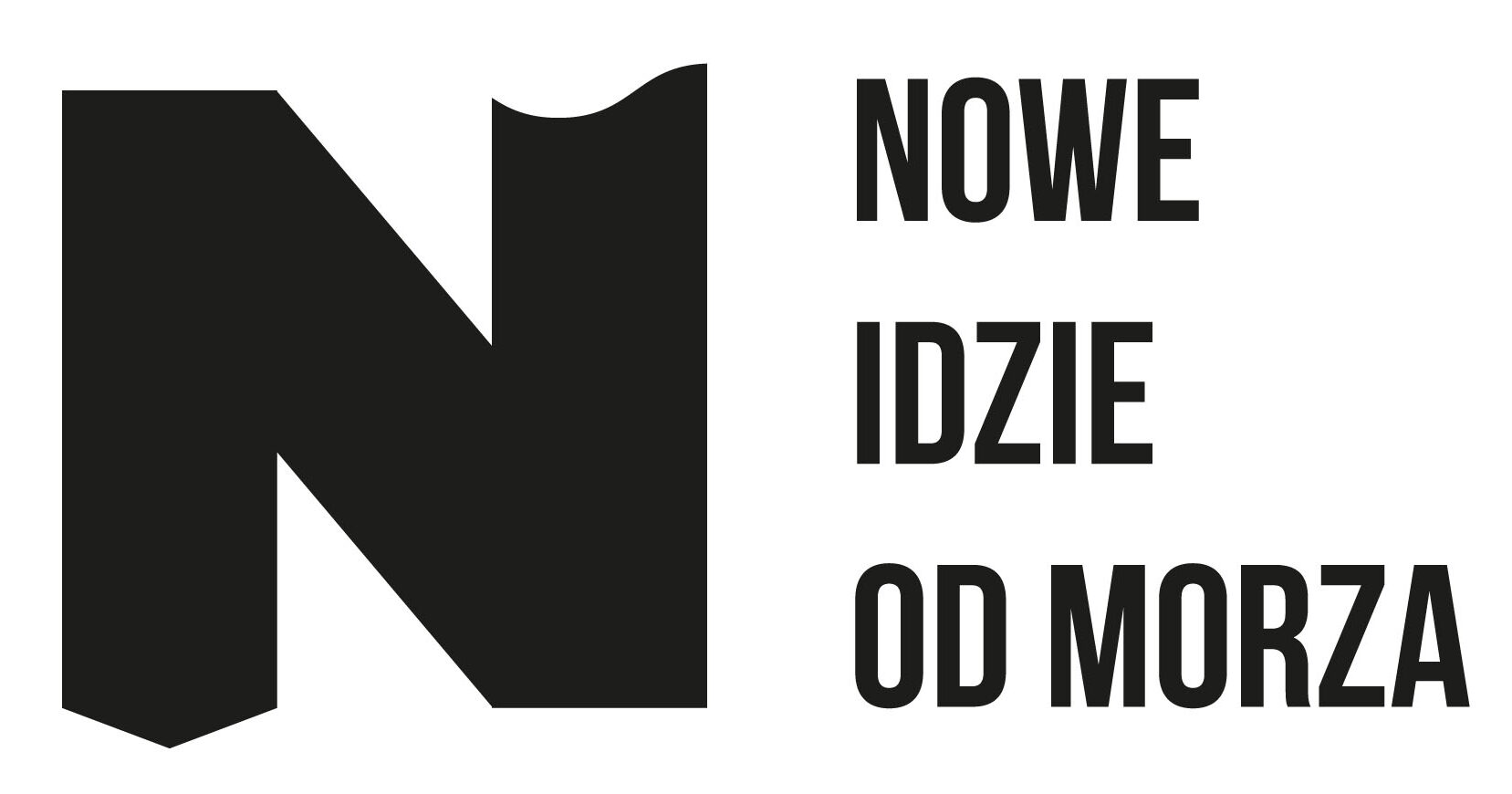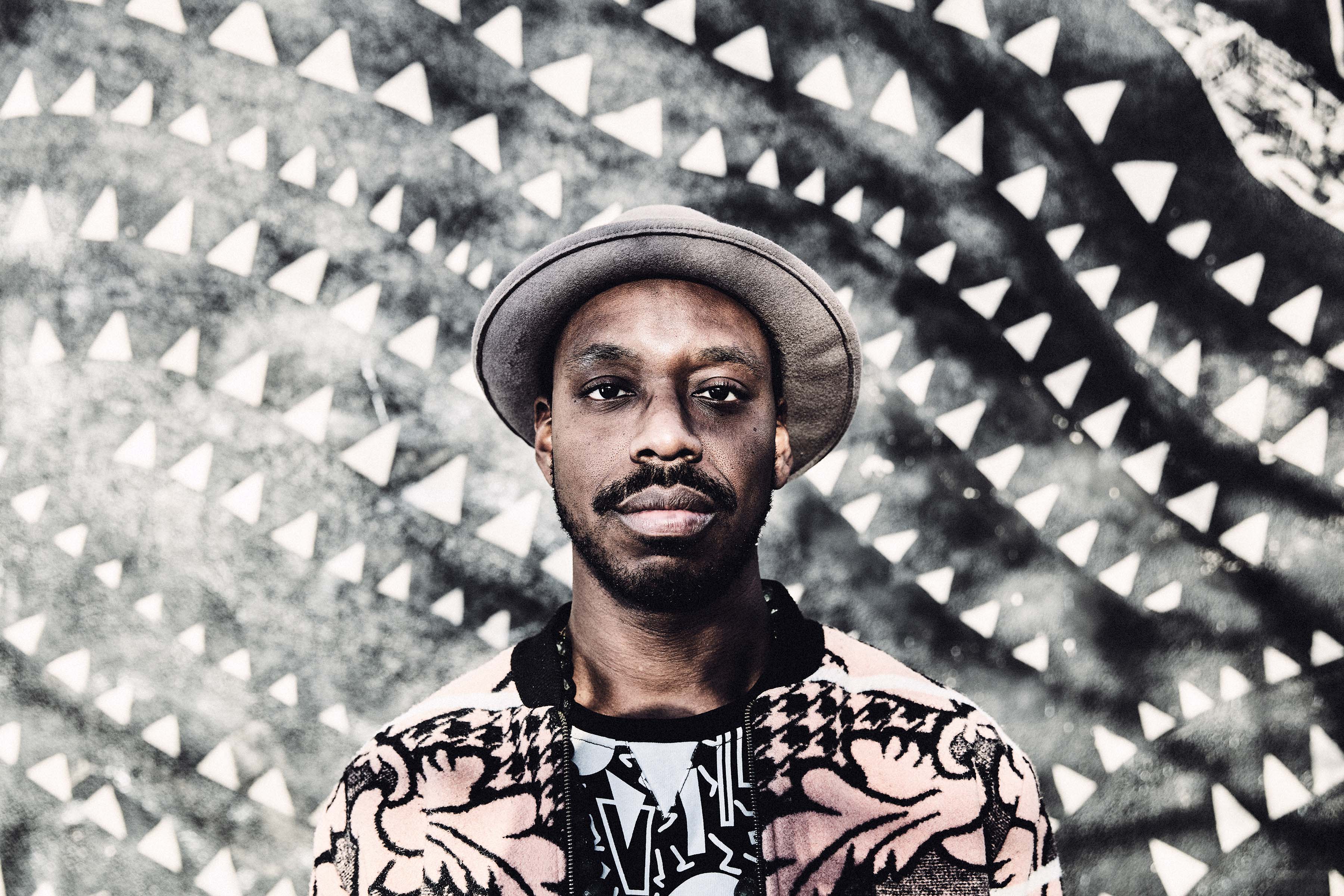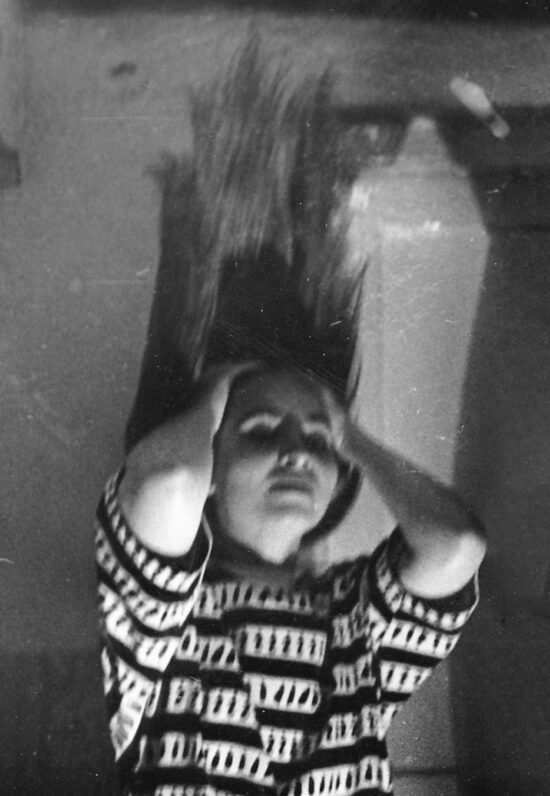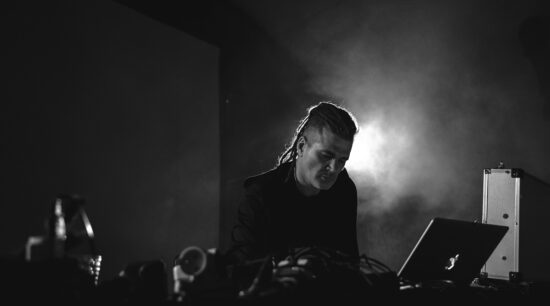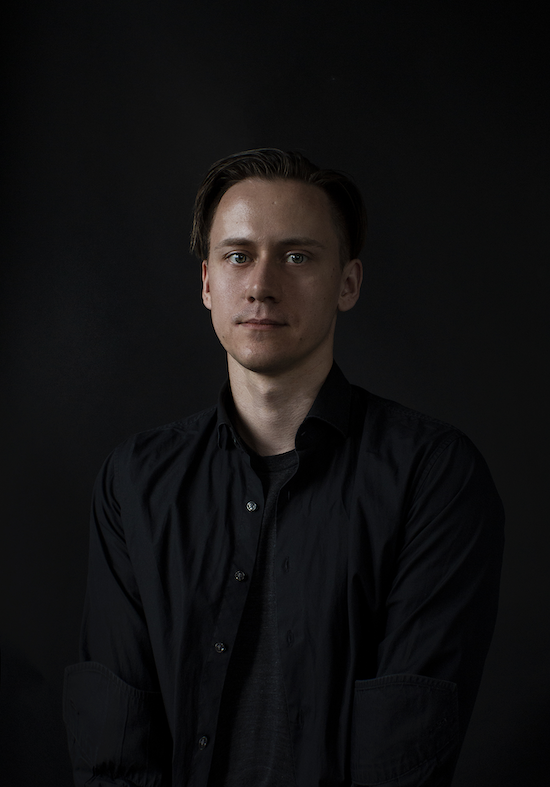– The culture that surrounds you will always have an impact on one’s artistic endeavours since you embody all which you come into direct contact with culturally. Even if this embodiment is manifested in its opposing or mirror image, one’s attempt to negate a surrounding culture will still be formed by the culture itself – speaks the saxophonist and clarinetist Shabaka Hutchings, musician of bands like Sons of Kemet, Shabaka & The Ancestors and The Comet is Coming. With the last one he will play in Katowice at Off Festival this year.
Translation: Aleksandra Szkudłapska
It’s hard to imagine the British jazz scene without someone like Shabaka Hutchings. It’s even hard to imagine the European jazz scene without him. This saxophonist and clarinetist has been active in bands representing very diverse genres, like Sons of Kemet – with whom he last year released the brilliant Your Queen Is a Reptile, Shabaka & The Ancestors – their Wisdom of Elders from 2016 joined forces between London and Johannesburg, or the trio The Comet is Coming, who this year released Trust in the Lifeforce of the Deep Mystery. In each of them, Shabaka explores a different musical field – The Ancestors and Sons of Kemet turn towards musical tradition, attempting to convey it in a new way, often in very peculiar line-ups. The latter ensemble is a quartet with two drummers and a tuba player, Theon Cross, who this year also released a very solid record, Fyah. The Comet is Coming is a trio, in which Shabaka’s electrified saxophone meets with synthesizers played by Danalogue (Dan Leavers) and drums played by Betamax (Max Hallett). Where the two first outfits reach for the roots and are more ritual-like, the trio nods towards psychedelia, spatial cosmic passages and inspired collective playing. But this is just the tip of the iceberg: Hutchings has played with Heliocentrics, Mulatu Astatke, Sun Ra Arkestra, Yazz Ahmed, Hieroglyphic Being, Alexander Hawkins or the concert line-ups of Floating Points and Polar Bear. His multidimensionality is noted across the globe: Downbeat has dubbed him the UK’s best export and Jazztimes heralds that he will revolutionise music. One thing that can be said for sure is that Shabaka is definitely a very distinctive figure on the new British jazz scene, which has noted a massive growth in recent years, for instance thanks to names such as Moses Boyd or Nubya Garcia. Shabaka has even curated a record devoted to them: the amazing compilation We Out There, which provides a more in-depth insight into the scene. Shabaka is also involved in current developments, which may be inferred not just from the subject matter included on Wisdom of Elders, but also from Sons of Kemet’s very articulate 2018 record, which touches upon the underrepresentation of gender in social discourse, inspired by the #metoo movement. Above all, though, Hutchings is an outstanding musician, who doesn’t seem to be slowing down or narrowing his perspective: he presents a new record and a new take on his art basically every year. In August, Shabaka Hutchings will play at Off Festival with The Comet Is Coming – for the occasion, I talked to him about this and his other projects, his musical beginnings, social involvement and the situation of musicians in Europe.
Jakub Knera: How did your journey with music begin? When you were the most into calypso and reggae.
Shabaka Hutchings: I’ve started my journey pretty undramatically. I enjoyed listening to the music that was popular around me. Growing up in Barbados in my early teens, I was mainly into calypso, soca, reggae and bashment music. But I also was really into the mid-late 90s hip hop that was present at that time. I was given a clarinet when I expressed an interest to play in the school band. I wanted to play in that band because I was bored.
My tastes and ability to interact with different types of musicians have since shifted through so many various landscapes over the years that I don’t see my progression into jazz music as a radical break from the music I loved as a youth, just a furthering of my scope for a deep relationship to music.
Why the clarinet then?
It was just a case of the teacher coming into the class, saying “who wants to play recorder”, because it was before clarinet. There was an open call for a school band with the clarinet, a few trumpets, trombones and a couple of saxophones. They didn’t have a lot of clarinetrists, so after the recording he said he wanted me to play the clarinet and I said OK.
Playing brass instruments is very psychical. Do you remember how you started playing it?
I did a classical degree. A lot of the way I play now and a lot of how the instrument is supposed to be played comes from the classical technical perspective. But it’s applied to a different end. The way I was taught in the Guildhall School of Music, where I studied under Joy Farrall and Andrew Webster, was a mentality that said playing the clarinet is a very deeply psychical exercise. Not in a way to play it loud or in a non-controlled way, but psychical in a way that there’s a lot of air down it and you have to control how the exact energy of that air is used. You can use it to be quiet, to have a whole range of dynamics and a whole range of expression, but at the core of it was not a psychically. That’s the way I see the playing of instruments, but not it’s energized performance – loud or quietly or whatever. With my playing now, I don’t do it with the same end, the same expectations I would make with classical music. I want to make the same energy, but I want a different kind of sound at the end of it.
You were born in London in 1984, but moved to Barbados at the age of six, where you started learning classical clarinet. At 16, you returned to the UK to continue studies in Birmingham and then London. How did Barbados influence you as a musician?
Within the musical climate I was exposed to whilst in Barbados, there weren’t many delineating factors that inhibited what musicians should play. It seemed perfectly natural to study classical clarinet while performing in calypso groups in carnival time and playing drums in the traditional “tuk music” ensembles for instance. I think this attitude of irreverence in how I defined myself as a musician has stayed with me. Maybe the fact of experiencing the relentless high energy frenzy that is the carnival has influenced the intensity with which I play. Sometimes I imagine that I play in the energetic manner that typifies most of my projects, because I’m trying to remember the feeling of jubilance experienced around this time in the Caribbean.
The culture that surrounds you will always have an impact on one’s artistic endeavours since you embody all which you come into direct contact with culturally. Even if this embodiment is manifested in its opposing or mirror image, one’s attempt to negate a surrounding culture will still be formed by the culture itself.
What made you switch more to jazz music?
When I moved to England at 16, I spent three years in Birmingham before moving to London. I met Soweto Kinch there – he ran a weekly jam session in a small wine bar. I attended this every week for three years. Being able to see the music being formed right in front of me was consistently a big part of fuelling the intrigue which kept me wanting to understand jazz music. Also, being able to practice and listen to records with Soweto aided me in becoming familiar with what the journey entailed.
Another important place is Cape Town and Johannesburg where you played a lot for some time. What’s the scene like there? How did the idea for the Wisdom of Elders album with Shabaka & The Ancestors come to your mind?
The scene is great, with a lot of great players contributing with very unique voices. The album came about by me simply wanting a way of documenting some of the musical experiences I’d been having with those musicians over the 3-4 years. Also, I wanted to see what happened when they played my music. In the forming of this music, I considered the role elders had played in moulding my musical conception. I dedicated the music in their honour.
How they shaped your music?
I’ve found that musicians of similar ability and musical temperament have a particular approach to studio work. One whereby every second of music matters, so the ease with which we recorded The Ancestors album is mirrored by the ease of recording Sons of Kemet and The Comet is Coming. The really new aspect was the very pressing time limitation we had. We had seven hours to record the entire album, whereas with Sons of Kemet we recorded all its albums in 2 days and with The Comet is Coming it took five. So this was a very concentrated blast of creativity.
By playing in each of these bands on saxophone you gain a very characteristic voice. What is the potential of this instrument in a political or social context? The Sons of Kemet album Your Queen is a Reptile is very powerful, especially the brass section is very strong.
Yeah, in some way the instrument is a tool for a person if someone can express on the instrument like the saxophone which has as much power and focused I just needed. I think that kind of mentality is very inspirational for other people – when you see someone very dedicated themselves to expression in any capacity, it makes them reflect on how they are going about their lives and focus on what they are doing.
This is a kind of ode to women, what we can even see in the titles. One – Ada Eastman – is your great grandmother from Barbados. What was the impulse to make it that way?
It’s strange because in some ways, the reality of how it all happened was a kind of static way. My process in making an album is having a period of time just booked in a diary to record. Leading up to it, I try to write as much as possible in a free way. But what’s also important is thinking about what are the issues that are around me, that I’m reading about, discussing with people or generally thinking about.
The album is connected to the ideas that surround me and everyone was giving a point. So, I had to produce a piece with a concept I was thinking about – it was the time the #metoo movement started to really gain public concern. The reflection of what it means to acknowledge the work of underrepresented females was huge on the mind of people around me. #metoo expresses the balance of historical perspective of minority communities in Britain and that perspective is a link to how we see our relationship to power structures.
The underrepresentation of females was very huge in jazz music for a very long time. Do you think that this discussion has changed anything?
I think this has changed – it’s one of the issues people talk about. The process of change is happening, where five or seven years ago they don’t diverse the problem in terms of gender in jazz, they wasn’t really in public consciousnesses, there were just questions like “what is jazz?”.
Talking about what jazz is, I would like to ask about jazz in the UK. The scene is growing, there was a compilation released last year, We Out Here, of which you were the musical director.
I think what the We Out Here compilation expresses the most in the fact that there is a bunch of young people that are connected to the music and the music is making itself relevant to the technics and tastes. All the music on that album reflects the image of the community of young people that are supporting jazz at the moment, they really want to hear it. They go out and support it, dance to the music and have a good time. And the mix of musicians providing music that the audience want to hear is also expanding the audience of appreciation of jazz history. Learning about the music can give them their own perspective on the making tradition.
British jazz has always had a special relation to the American tradition. It’s an attitude of searching for meaning or identity within the spectre of the great American tradition.
Is London an important centre of the scene?
There is a jazz scene which is always in flux due to the number of people who pass through the city. I find inspiration in the musicians I’m able to come across, since you can find players of so many styles, it’s just about knowing where to look.
Could it change after Brexit?
I don’t know. In some ways no. If good music is going to be created in any country, it will be created whether musicians would leave or not. What it would probably do is stop the flow of young unestablished bands. One of the ways Sons of Kemet or The Comet is Coming have been able to be in the position where they are now is to be able to go across to Europe, have gigs for not a lot of money: do little clubs, support other bands. At that point it wasn’t about money for us, but at least it was possible to have flow and drive in a car across the continent. Brexit would bring visa costs, so it might limit young bands to get that experience and audience to support it.
Do you get invited to different festivals because of different music or because the people know what you are doing and that your interest in music is very wide?
I think it’s always a combination of factors. There is an element of curation in terms of putting together a programme that works and also programmes that make sense in terms of what audience is going to experience. My music is pretty intense.
Do you think jazz is getting more popular to the wider audience?
Jazz can be interesting to young people these days, if it includes musical elements they like, which draw them away from the stigma of inaccessibility – which seems to have taken hold with the term ‘jazz’ at a point.
I guess the balancing act as a performer is to gauge what elements resonate with your audience, while still presenting your artistic vision of sound with full integrity.
How do you find yourself between these different styles and traditions – synth sci-fi music with The Comet is Coming, polyrhythmic music with Sons of Kemet and music rooted in Africa with Ancestors? How important it is for you to move between these different worlds?
For me, music is about interacting with individuals and allowing the traditions that they have mastered to merge with my musicality. So in a way, I’m not concerned with traditions as such, only with the interpersonal relations between differing musicians.
Can Sons of Kemet and Shabaka and the Ancestors be described as bands that try to reach the history?
These are two bands where I wrote all the music. It’s a direct reflection of my struggle to negotiate what I’ve learnt – the musical language and a way of communicating – that’s acceptable for the kind of audience and kind of gigs we’re doing. In music, I always write is some sort of attempt to articulate my position next to the tradition. There’s always going to be some struggle to negotiate the terms of what I’m dealing with, the balance of tradition and modernity.
On the other hand, would you place The Comet is Coming as music with a kind of electronic vibe?
The Comet is Comet is a band, whereas I see the two previous groups as projects where I am the leader. I am the person who decides the direction and the flow. Everyone has creative way range to give as much as they can but this is special energy that happen when you have individual control. The Comet is Coming is a band without one leader who decides “this is how I want it to be” – we all make it happen in equal amounts of impact. I find myself not necessarily structured the music in a way to shows my relationship to tradition. I’m trying to play my most appropriate stuff for the situation.
This is also a more electronic band with effects.
There’s a couple of levels. One is the volume – it’s a loud band, there’s also a lot of space. As soon as you get electronic instruments, it creates a different energy, because it’s not about the psychical.
In Sons of Kemet, every single person on stage is doing a psychical action in terms of producing the sound. The Comet is Coming is more conceptual – it’s the brain behind that decides what it wants to see in the music. It’s more like a trance-space band. For me, the challenge is to be able to gauge or control my physicality – I can take music as far as electronic bass wants it to go.
It’s a rather psychedelic band, even the album cover of Trust in the Lifeforce of the Deep Mystery shows that. But these bands show your predilection for unusual lineups: drums and synths in The Comet is Coming but also the tuba and two drum kits in Sons of Kemet.
I don’t even think about it. It’s normally just full driven even in terms of individuals or what the sound is going to be. For me the expanded format like the double bass, piano, drums and horn is fine, it’s a great line-up and it works but it’s just one combination of sound. And that combination of sound is a combination of personalities who make those sounds. If we’re trying to get the most powerful music, we need to have the best and most appropriate combination of people. The history evolves the searching types of instrumentation what matters is the result. If the sound down in my head calls for two strings, four percussionists, the bassoon, French horn and a vocalist – that’s what it is. It doesn’t mean if it’s conventional in the gate of history.
Talking about combinations of people, it seems that your bands are also present in different contexts, like the Mercury Prize, where in 2016 and 2018 two of your projects were shortlisted next to bands like Radiohead, the XX, Alt-J or James Blake. Is being part of that kind of British music community important to you?
It’s really important, because at the end of the day we’re all musicians. The more I meet musicians, the more I know about music. You may be focused just on one genre, but when you meet great musicians, it doesn’t matter if it’s rock or electronic music. It’s important how they are able to express themselves and control whatever instrument or medium they do to happen at the end. As long as you can do that, for me it doesn’t matter about the specific sort of music. All you hear is someone express themselves. The technical attributes is another thing – anyone can practice enough to go where they can. Sometimes musicians are seen in the same category, because technically they know how to do the same thing, but for me it’s not necessarily an important element.
I can have more in common with a punk musician in terms of what we’re trying to do than to a jazz musician. Because at some point in our lives, me and the punk musician went to different studies, we are seen like two different beasts, musical creatures. Whereas we are just musicians trying to express things and search for musical truths. What the genre is around or what language is used to this expression doesn’t matter.
Shabaka Hutchings will play with The Comet is Coming on August 2nd at the Off Festival. Their latest album was released by Impulse! Records. Here you can listen to it in its entirety.
